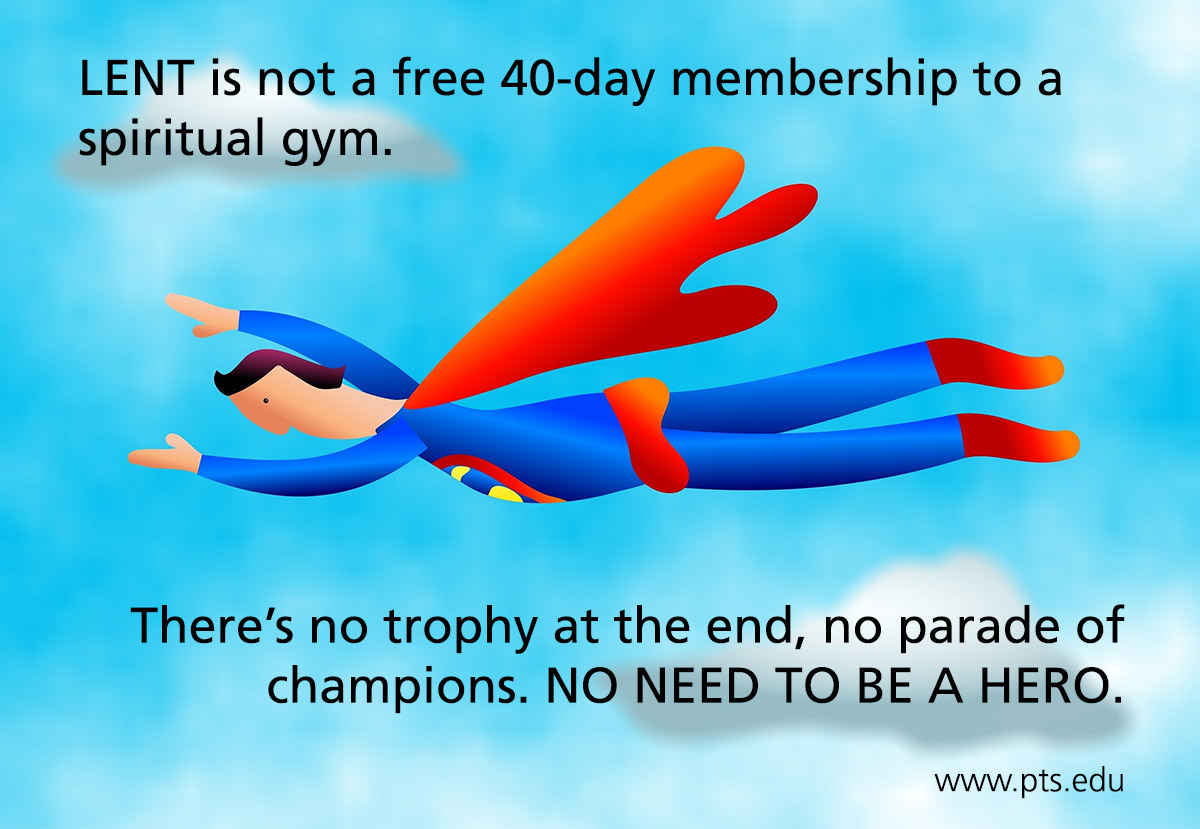How should you decide what you are going to give up—or take up—for Lent this year?
Here’s my plan: I’m going to wake up an hour earlier than usual, depriving myself of sleep and devoting that hour to prayer; read meditatively through the whole New Testament, paying particular attention to living the Sermon on the Mount; fast from sweets and chips, as usual, as well as from meat and Pinot Noir; write letters of encouragement to friends, family, and all my far-flung enemies; and call P. twice a week, whom I assiduously avoid during ordinary time, as penance. And do all of this before 7:00 a.m. each day. (Sorry P.—that’s your penance.)
As kids would say when I was young: NOT!
St. Thomas Aquinas, the 13th century theologian, prayed, “Put my life in good order, O my God.” But we are prone to view Lent as the season during which we put our lives in good order for God. It’s like Jan. 1 all over again: we pile on the discipline, the resolutions, and the good intentions so that by Easter we’ll be the saints we want to be—and recognized for it.
We have forgotten, if we ever knew, the deep truth of life with God, stated succinctly by Ruth Burrows, an English Carmelite sister in her 90s: “Prayer is not our activity, our getting in touch with God, our coming to grips with or making ourselves desirable to God. We can do none of these things, nor do we need to, for God is there ready to do everything for us, loving us unconditionally.”
God is there ready to do everything for us, loving us unconditionally.
In other words: Don’t be a hero.
We are not the first to be tempted to spiritual heroics. In the rule he wrote for monks, the 6th century St. Benedict cautioned moderation in all things, including Lenten discipline. He required each monk to inform the abbot of his plan to observe Lent as a way to avoid pride, the assumption being that the abbot might say, “That’s a little much; back off.” Of course, what seemed moderate in a 6th century monastery might feel extreme to us, but the principle of moderation remains the same regardless of the century.
If Burrows is right that it’s not our job to find God or make ourselves acceptable to God, because God is already here, working and loving in us, then maybe in Lent we should aim for something more modest: to make a little space to become aware of that divine presence, available to it. The following guidelines might help with that endeavor:
Cut it in Half
Take whatever you were imagining you might do in Lent and reduce it by 50 percent. Why set yourself up for failure? You were going to read 10 psalms a day? Make it five. You were going to spend 30 minutes in silent prayer each evening? Make it 15. You were going to call your most aggravating friend twice a week? Make it once. Better to do something that makes a little space than try to make a lot, only to throw in the towel by the second Sunday of Lent.
Follow your Longing
Don’t give up chocolate because everyone else is doing it. Ask yourself: Where have I been longing for freedom in my life? What way of prayer has been calling my name? Have you wanted to spend time in silence, meditating on Scripture, but haven’t found the time? Lent might be a chance to begin. You’re more likely to keep at something that comes out of your own God-inspired longing.
Tell Someone
St. Benedict was right—we’re more likely to overachieve if we keep our discipline a secret. Why not run it by a trusted friend or spiritual mentor—someone who knows you, your ambitions, and your blind spots? There’s a chance that when you say it out loud and see the look on your friend’s face, the truth might hit you: I’m trying to be a hero, aren’t I?
Lent is not a free 40-day membership to a spiritual gym. It’s an invitation to make space that opens us to God’s forgiving, healing, loving presence. There’s no trophy at the end, no parade of champions. No need to be a hero.
The Rev. Dr. L. Roger Owens is associate professor of Christian spirituality and ministry at Pittsburgh Theological Seminary and teaches courses in the MDiv, Doctor of Ministry, and Continuing Education programs. Before coming to PTS he served urban and rural churches for eight years in North Carolina as co-pastor with his wife, Ginger. He has written multiple books including The Shape of Participation: A Theology of Church Practices which was called “this decades best work in ecclesiology” by The Christian Century.


Roger….this is great! You are doing a wonderful job of it!
Hey Roger!
Thanks for your reflections on our spiritual plans for Lent. Bringing the Superhero imagery into it is helpful as well. I will use this for my own Lenten journey and as I encourage my congregation to make their Lenten plans.